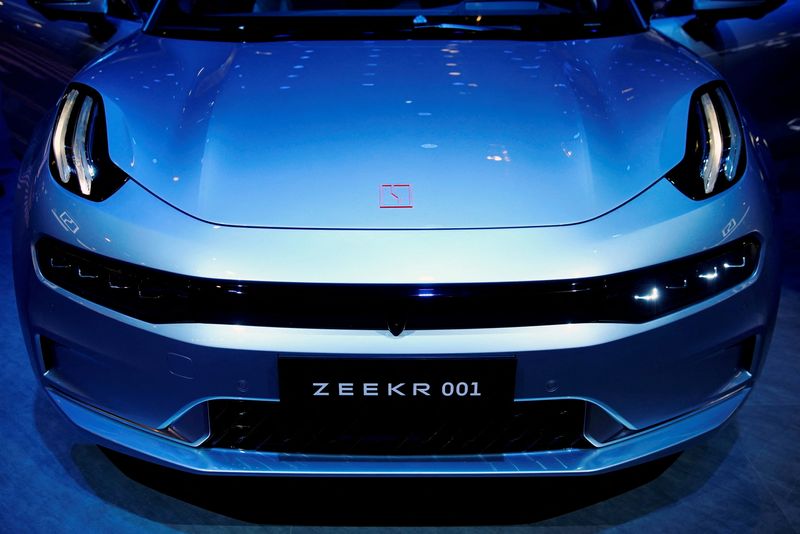By Norihiko Shirouzu, Maki Shiraki and David Dolan
BEIJING/TOKYO (Reuters) - Nissan (OTC:NSANY) Motor Co's concerns about technology transfers have complicated its partner Renault (EPA:RENA)'s plans to sell a large stake in its gasoline-engine business to China's Geely, three people familiar with the talks said.
Renault is pursuing a complex two-pronged restructuring. On one hand, it is aiming to revamp its alliance with Nissan and convince the Japanese automaker to invest in a new electric car unit called Ampere.
At the same time, it also plans to separate out its gasoline-car business, code-named "Horse", and is seeking to sell a large part of it to Geely.
Investors will be looking for details on the state of play for both sets of negotiations on Tuesday when Renault Group Chief Executive Luca de Meo delivers an update on the French automaker’s strategy and financial projections.
Nissan's concerns about technology rights, which also extend to any potential investment in Ampere, suggest Renault will have to negotiate and potentially settle the deals in parallel.
Nissan wants to ensure that key internal-combustion and hybrid technology it owns is protected in any deal Renault strikes with Geely, two of the people said.
In addition, the separate question of potential technology transfers to a Chinese company needs to be treated cautiously, they said.
The sources were not authorised to speak to media and declined to be identified. The three automakers declined to comment.
RENAULT-GEELY PROGRESS
Talks between Renault and Geely have made progress after negotiations in London last month, one of the three people familiar with the matter said, without providing details. Geely Chief Executive Daniel Li had been in London for those negotiations but has since returned to China, that person said.
Geely, which owns Volvo Cars and a 9.7% stake in Daimler AG (ETR:MBGn), could take a significant and potentially controlling stake in the gasoline-car business, sources have previously said.
Discussions between Renault and Nissan were underway in Paris last week and de Meo and his Nissan counterpart, Makoto Uchida, have been talking every weekend, Uchida told Reuters last week.
Nissan's concerns about technology rights have also been one reason why it has yet to reach a preliminary agreement to invest in Ampere. It has unresolved questions about the rights to intellectual property for cutting-edge technology like solid-state batteries, people familiar with those talks have said.
Discussions have included the need to ensure that any technology transferred to Ampere stays within the EV unit, two people said.
Uchida said Nissan was aiming for a restructured and “equal partnership” that would strengthen the competitiveness of both in the transition to electric vehicles.
Renault has a 43% stake in Nissan while the Japanese automaker has a 15% non-voting stake in Renault. People with knowledge of the talks have said the two sides have been discussing a reduction in Renault's stake in Nissan, potentially to 15%.
The Renault-Nissan alliance, which includes Mitsubishi Motors (OTC:MMTOF) as a junior partner, announced plans in January to invest a combined $26 billion.
That combined investment is still only half of what larger rival Volkswagen (ETR:VOWG_p) has committed.
Uchida said a deal with Renault that would optimise shared investment was important because the scale of the alliance's investment was still less than what was planned by what he called “a giant OEM.”

He did not mention the original equipment manufacturer by name.
Uchida also said Nissan wanted to see a “fair treatment” of its interests in any new partnership Renault strikes with Geely. The shift to electric vehicles is happening at different speeds in China, the United States and Europe, he said.